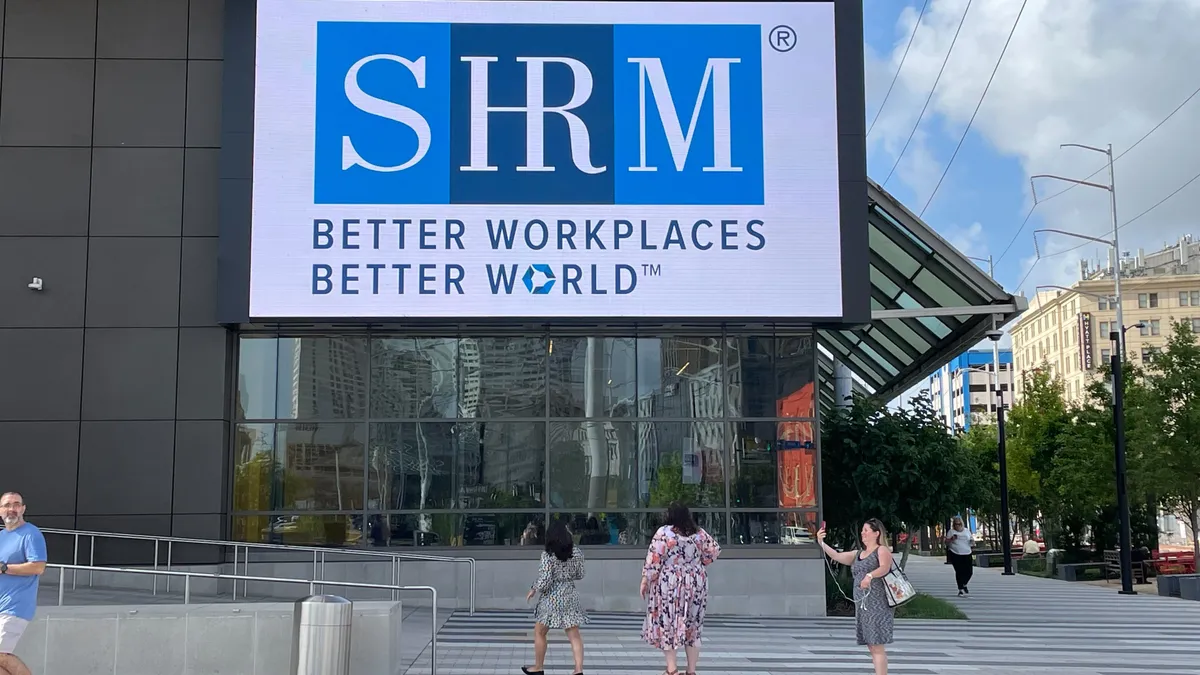The Society for Human Resource Management filed an amicus brief August 3 in defense of a group of Connecticut executives charged by the U.S. Department of Justice with restricting the hiring and recruiting of aerospace engineers and other workers.
According to the grand jury indictment, filed Dec. 15, 2021, six executives — five at companies that outsourced workers, and one at a large aerospace company that used outsourced workers (identified by the Hartford Courant as Raytheon subsidiary Pratt & Whitney) — were involved in the conspiracy.
In addition to allegedly upholding the no-poach agreement, the primary defendant at times “confronted and berated Suppliers who cheated on the agreement, often at the direct behest of another Supplier, and threatened to punish nonconforming Suppliers by taking away valuable access to projects,” a U.S. Department of Justice press release described.
In its amicus brief, SHRM noted the difficulty HR professionals may encounter when attempting to partner with multiple staffing firms to provide labor on the same project. Due to a previous court decision, SHRM said, no-poaching agreements in such a context are sometimes lawful. “But which ones?” It asked.
A federal guidance on the topic for HR professionals doesn’t explain “under what circumstances they may use multiple staffing firms with confidence, and in which cases they cannot,” SHRM said in its brief. The business advocacy organization said it is not aware of any study or analysis undertaken by the government that has correctly concluded “that the utilization of multiple staffing firms on single projects or at a single location for a client is inefficient or anticompetitive. Yet, the effect of prosecuting no-poaching agreements criminally in this context will ban them.”
In its brief, SHRM urged the use of the “rule of reason” analysis to evaluate antitrust violations, rather than the per se rule. While the rule of reason requires an in-depth analysis of an agreement to determine whether it imposes an unreasonable restraint on competition, the per se rule merely requires demonstrating that such an agreement took place, according to antitrust law firm Bona Law.
“The possibility of per se liability and strict criminal sanctions in this context creates substantial risk to human resource departments and professionals,” SHRM said. Specifically, it would hinder their ability to use their business judgment without fear of criminal prosecution, according to the organization’s brief.
The evolution of noncompete and other agreements has turned antitrust into an HR issue in recent years, an antitrust lawyer told HR Dive in July. Employers should make decisions pertaining to employees’ wages and benefits “unilaterally and independently, without entering these agreements with other employers,” he said.
While SHRM in its brief critiqued the lack of thoroughness of the joint DOJ and Federal Trade Commission 2016 guidance on antitrust, HR pros may want to revisit it to ensure they err on the side of caution with respect to certain employment decisions.
“Naked wage-fixing or no-poaching agreements among employers, whether entered into directly or through a third-party intermediary, are per se illegal under the antitrust laws,” the guidance stated.














